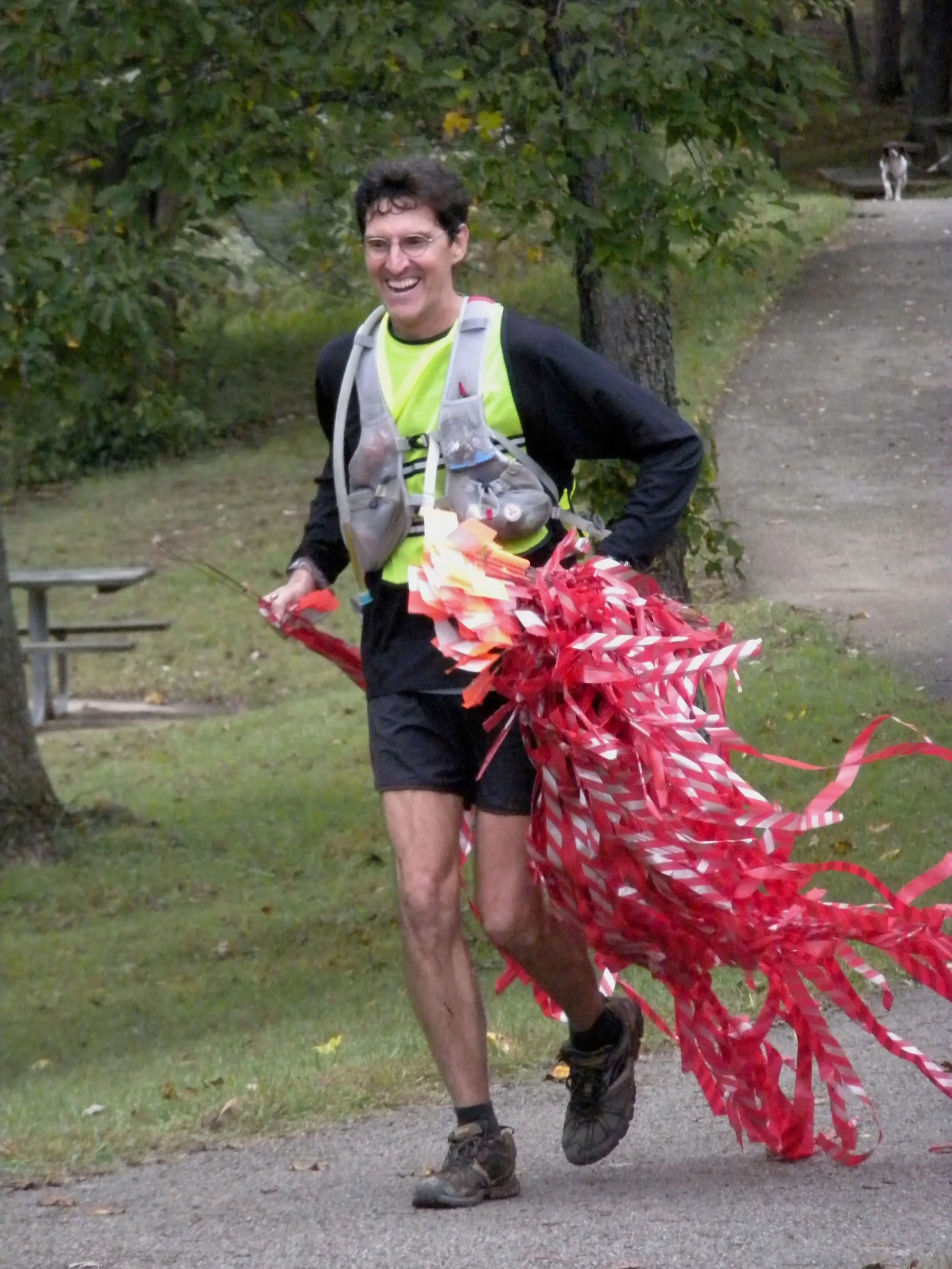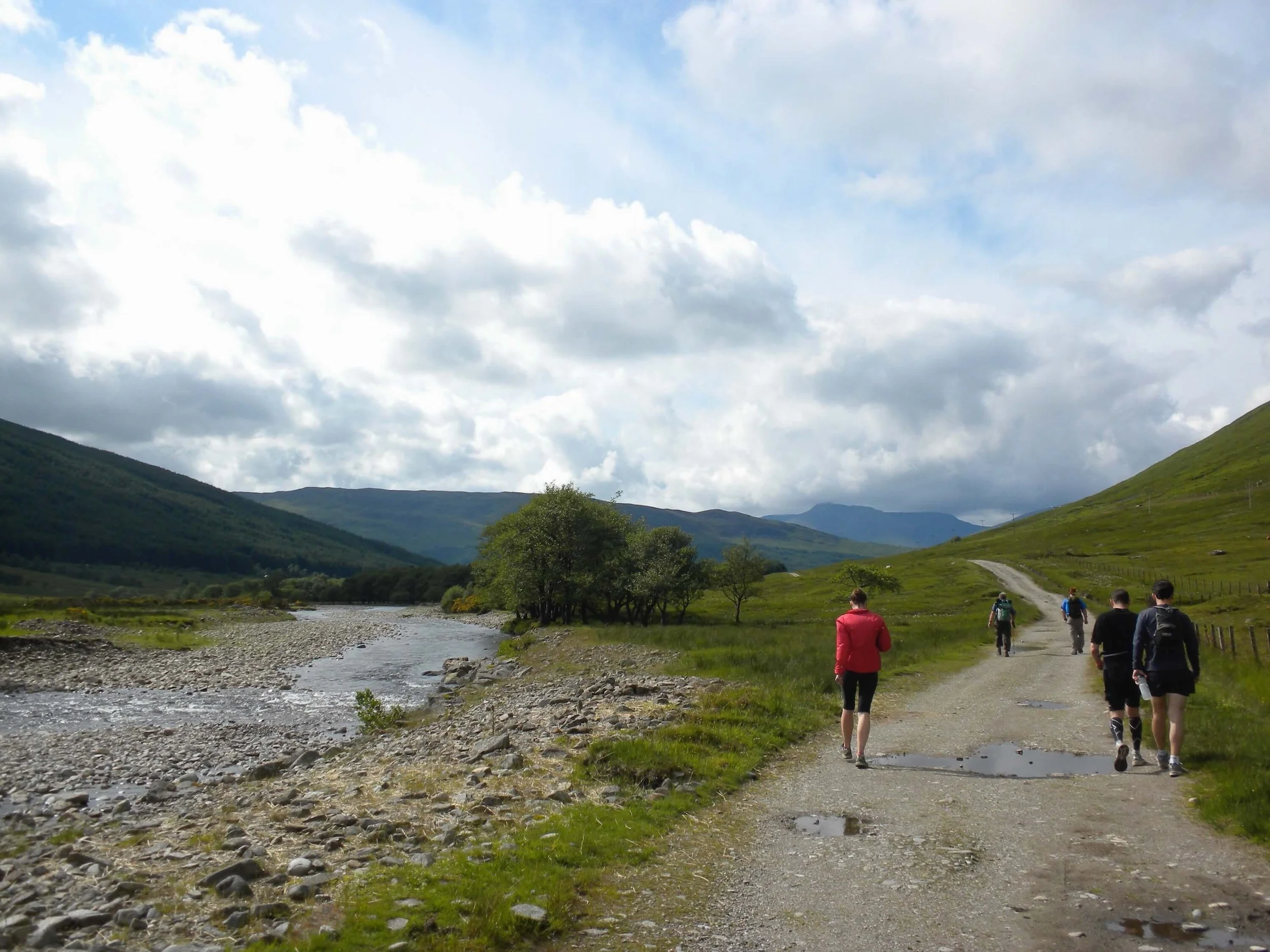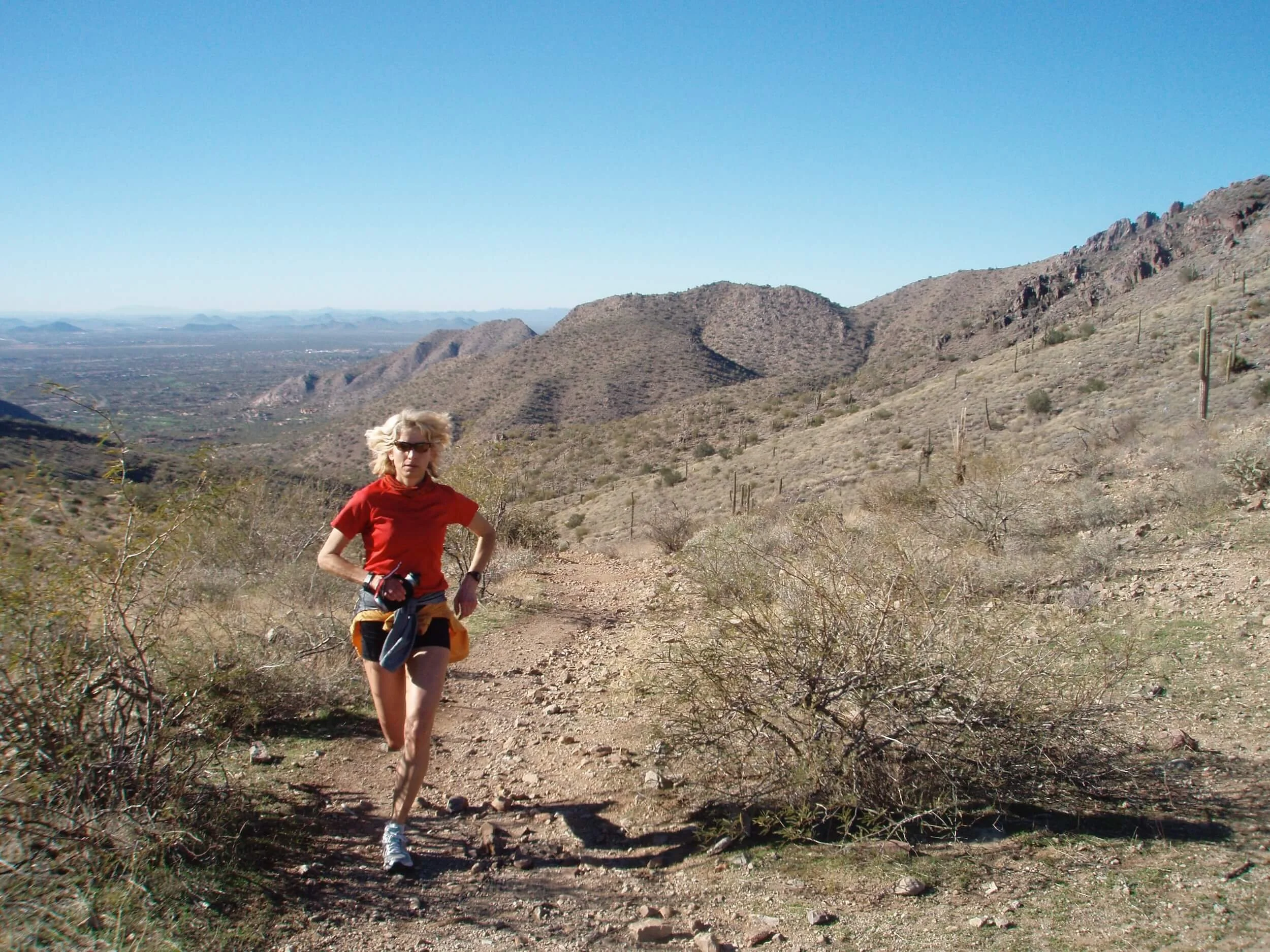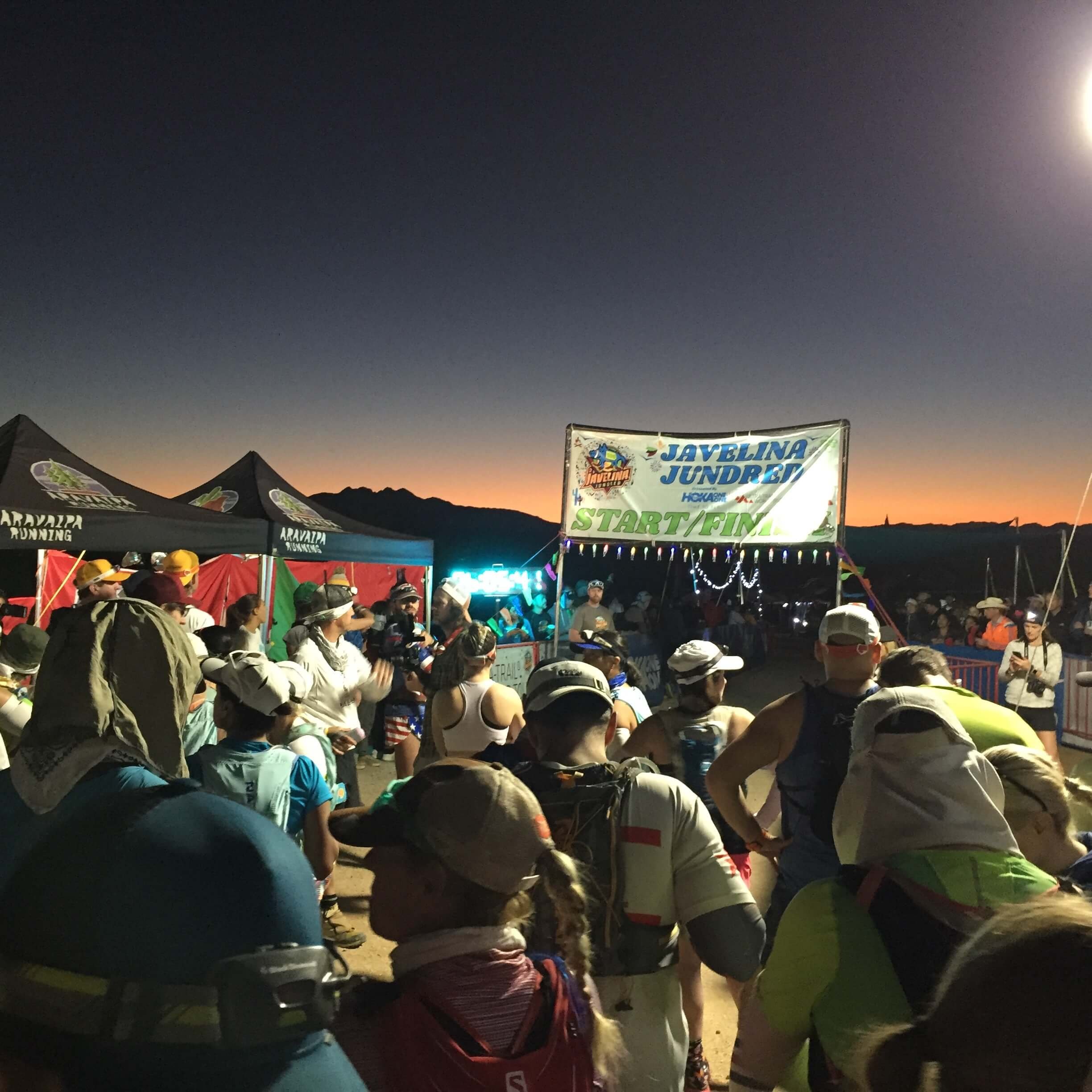The Blog
Tips, ideas, and true stories to build your ultra confidence.

Your Race Goal Might Just Be Insurance
You might be approaching race goals backward.
You look at the race, assess what seems achievable, pick something you're pretty sure you can defend if questioned, and call that your goal. Then you train for it and execute.
The result? An "ok" race. Not bad. But not what you're capable of either. And that nagging feeling that you held something back.
Here's what's actually happening: you're not picking goals based on what you want. You're picking a goal you can defend if you fail.

Are You Stuck in Mouse View?
"Always be learning.”
That's one of the biggest lessons my dad taught me, and one that I love. Because I love learning and growing, and I'm guessing you do too. Otherwise, you wouldn't be an ultrarunner. A 5k would suffice.
But there are two ways to learn in ultrarunning.

You Don’t Have to Top Your Best Race
You crossed the finish line of your first ultra. Or maybe you finished your first 100-mile race. Perhaps you even placed in your age group.
It was everything you'd hoped for and more—the kind of race that makes all the training, all the schedule changes, all the doubt worth it.
And now? Now you're thinking about racing again.
But you can't shake this feeling. This dread that whispers: “What if I can't do it again?”

Shifting From Impatience to Endurance
You did it.
You finally signed up for that race - maybe it's your first ultra, a technical mountain race, or simply a distance that pushes your boundaries.
But now as race day approaches, instead of excitement building, a different feeling is taking over: intimidation.

How Strengths-Based Thinking Transforms Your Running
You did it.
You finally signed up for that race - maybe it's your first ultra, a technical mountain race, or simply a distance that pushes your boundaries.
But now as race day approaches, instead of excitement building, a different feeling is taking over: intimidation.

How One Wrong Assumption Cost My Client a Finish
Picture this: You're grinding through mile 80 of a 100-mile ultramarathon.
You’re exhausted, but your determination is strong. You're keeping a good pace, you’re at peace being in the back of the pack, and you're going to do everything you can to make it to that buckle.
Then you hear footsteps behind you.

The One Race Distraction Every Runner Needs a Plan For
I had a session recently with a client who was preparing for her first 100K finish.
As we discussed her race strategy, I brought up something I cover with every runner I coach: one of the biggest distractions in any race isn't the terrain, the weather, or even your own fatigue—it's other runners.
She looked surprised. "Other runners? I thought having company was helpful."
It's a common misconception, and one that can cost you your best race.

The Invisible Finish Line Holding You Back
I met him around mile 40 of a tough 100-mile race.
As we settled into pace together, the conversation naturally turned to our race goals.
"This is my third try at the hundred," he said with a rueful laugh. "Dropped out at 70 miles last year in this race. And tried another earlier this year and same thing—70 miles in that one too."

Are You Second-Guessing or Learning From the Race?
A client came to me heartbroken after another DNF.
She thought she was behind cutoff and wouldn't make the next aid station, so she slowed to a leisurely pace. When she arrived, she was pulled from the race—only to discover she hadn’t actually been behind cutoff and could have made it if she'd kept moving strong.
With multiple DNFs behind her, she worried she'd used faulty math to justify dropping. Had she unconsciously self-sabotaged? And now, examining her race decisions, she feared she was second-guessing herself—something she'd been told she shouldn't do.

When the Race Stops Being Scary
Worried the race will be harder than you can handle?
It might be.
That’s a risk we take, every race.
Ahead of a race, you might wonder— will I go into this race, be way out of my depth, and end up not making it?

When You Need a Win
Let’s say you DNF’d your last few races.
Maybe you got pulled or maybe you dropped, but either way, you’re tired of coming up short.
It’s demoralizing, so you decide on a new strategy: Find something easy to finish.

You Went Out Too Hard - Now What?
It happens.
You glance at your watch and see your heart rate is higher than you planned. Or you notice you’re running faster than your goal pace. Or you realize you’re working harder than you meant to this early in the race.
Oh no, you think. This is bad. I’ve blown it.

When It All Hits At Once
In an ultra, being uncomfortable is guaranteed.
But sometimes, it all hits at once—your legs tighten up, your stomach turns, your emotions flare—and suddenly it feels like a massive boulder has landed right in your path.
You can’t go over it.
You can’t go around it.
You feel stuck.
But here’s the thing: that boulder isn’t just one thing. It’s three things combined together.

I Had a Terrible Long Run - Here’s What I Did Next
I had a really bad long run this weekend.
My next 100-miler is in a month, so I’m ramping up my training. I tried a new course that I knew would be challenging and gave myself the whole day to finish it—plenty of time to go slow and adjust.
But I made some key mistakes, it was harder than I expected, and as a result I ran poorly—and only got half the miles I planned.
The thought that kept running through my head as I finished: “This is a disaster.”

Is It Really a Problem?
IThis evening on my trail run, I saw a box turtle.
Normally when I see one, it watches me for a second, then pulls back into its hard, helmet-like shell like I’m some obvious predator. I always feel misunderstood and want to reassure it—I’m not here to hurt you. I’d help you cross the road if you needed it. Right now, I’m just passing through your living room. Don’t mind me.
But this one was different. It looked right at me for a few moments, then just…kept walking. Not hurried. Not hiding. Just went about its turtle business like it knew I wasn’t a threat.
And I thought—that’s the way it is in a race. Not everything is a problem.

The Real Risk of Choosing an “Easy” Ultramarathon
You want to run the big races. The ones that light you up. The ones you don’t even confess to.
But then fear creeps in.
What if you don’t finish?
What if you’re not capable?
What if you’re way out of your depth?

How to Deal with Race Day Anxiety (Without Controlling the Weather)
You’re Not Anxious Because of the Weather. (Or the cutoff. Or blisters.)
You’re standing at the start line—or maybe just thinking about race day—and your heart is already racing. And not in a good, I-can’t-wait-to-get-started kind of way.
You’re anxious. About the weather. The cutoff. Your stomach. Whether your headlamp batteries will make it to sunrise. (You changed them. Didn’t you?)
And then, just to spice up the mind drama, you start feeling anxious about being anxious.

How to Know If You’re Ready for Your First 100 (or 200) Miler
If you’ve ever found yourself circling the question, “How do I know I’m ready to move up in distance?”—you’re not alone.
That question keeps a lot of runners stuck. They don’t know how to answer it, and because they can’t answer it with absolute certainty, they assume they’re not ready.
What they’re really trying to do is erase the risk. To find enough evidence to make the fear disappear. They think once they feel confident they’ll finish, then they’ll know it’s the right time.
But that moment doesn’t come. The fear doesn’t go away. The guarantee never shows up.
And so they keep waiting.
Let’s call this what it is…

I Should Be Able to Figure This Out on My Own
“I Should Be Able to Figure This Out on My Own”
There’s an unspoken pressure in ultrarunning to be endlessly tough.
We pride ourselves on pushing through pain. Solving problems mid-race. Getting it done, no matter what.
That toughness serves us—until it turns into isolation.

You’re Not Slow. You’re Running With the Wrong Voice.
You’re Not Slow. You’re Running with the Wrong Voice.
If you’ve ever felt like you’re just not fast enough—like no matter how hard you train, you’re always falling behind where you want to be—you’re not alone. Most runners respond to that by doing the obvious:
They train harder. Add speed work. Build mileage. Incorporate strength training.
Throw more at the problem and hope something sticks.
And what do they get?
Grab your copy of New Thoughts to Believe
Lorem ipsum dolor sit amet, consectetur adipiscing elit, sed do eiusmod tempor incididunt ut labore et dolore magna aliqua.